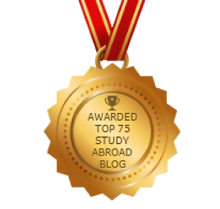Posted on May 30 2020
Canada lists scenarios for CBSA to make decisions at the border
By , Editor
Updated May 25 2023
Canadian Border Services Agency (CBSA) gives out internal instructions to the authorities who are the final approvers on who crosses the Canadian border.
The present travel restrictions at the Canadian borders for COVID-19 prevention disallows anything but essential travel across the border.
But there has been an ambiguity on what all are considered “essential travel” among the general public. This affects those who arrive in Canada on Canada visitor visa for a purpose that will be scrutinized by CBSA.
Even family members of Canadians who are foreign nationals must demonstrate that they are entering Canada for a “non-discretionary” or “non-optional” reason.
Even in cases where the foreigner is coming to Canada to witness their first-born child, to enter the country they must have a plan for a 14-day self-isolation in quarantine. But if the traveler is a grandparent of the newborn child, that person’s visit won’t be treated as “essential”.
Like these cases, many other scenarios that are minutely relevant are not yet available on the Immigration, Refugees, and Citizenship Canada (IRCC) webpage. As of now, contacting IRCC or CBSA for clarity on individual situations is the option available.
Few exemptions to the requirement for the 2-week quarantine are listed in CBSA’s internal memo. The memo has 28 pages full of instructions to officers at the border. It mentions various scenarios described with clarity.
The terms “non-optional” and “non-discretionary” that the government has devised have been used to preserve the meaning intended.
Certain scenarios have been excluded from the memo like:
- The parties involved are Canadians and people of First Nations, who may exercise a right to enter Canada
- People involved are foreign nationals who have no other way than to cross the border due to natural disaster or a highway closure
But by referring to the scenarios from the CBSA’s list, clarity may be obtained. The list has these scenarios sorted into categories namely:
- Students
- Family
- Workers
- Business
- Other travelers
If you are looking to Study, Work, Visit, Invest or Migrate to Canada, talk to Y-Axis, the World’s No.1 Immigration & Visa Company.
If you found this blog engaging, you may also like…
Tags:
Canada immigration
CBSA essential travel
Share

